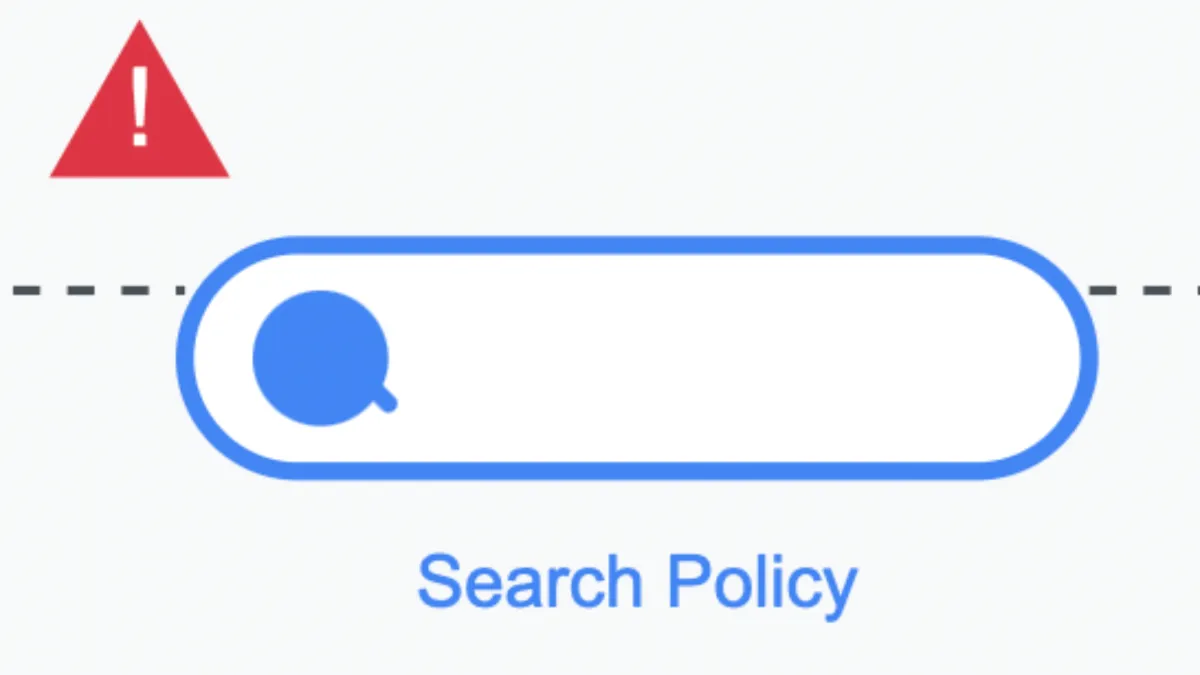
On December 2, 2024, the News Media Alliance formally petitioned U.S. antitrust regulators to investigate Google's recent site reputation abuse policy changes. The organization's letter to the Department of Justice and Federal Trade Commission outlines serious concerns about the search giant's approach to third-party and affiliate content.
According to News Media Alliance President Danielle Coffey, the policy change threatens legitimate media properties with potential removal from search results if they publish affiliate links or partner content, even when such content undergoes editorial oversight. The impact extends beyond sponsored content, affecting publishers who have invested in expanding their newsrooms specifically to comply with Google's previous requirements.
The timing of this development holds particular significance. The letter, addressed to Assistant Attorney General Jonathan Kanter and FTC Chair Lina Khan, arrives just months after Judge Mehta's August ruling that found Google had illegally maintained a monopoly in the search market. This context amplifies the urgency of the publishers' concerns.
A striking example illustrates the policy's impact: one publisher hired more than 30 reporters to ensure compliance with Google's guidelines, yet still received manual actions against three of their sites. In one case, the penalty stemmed from a mere reference to a partnership, which was subsequently removed.
The technical implications of these manual actions present significant challenges. When Google removes content from search rankings, the process of restoration can extend from weeks to months, even in cases where the removal occurred in error. This prolonged period of reduced visibility can severely impact publishers' traffic and revenue streams.
The Alliance's letter emphasizes a historical perspective often overlooked in digital discussions. Many publishers have traditionally offered coupons and special sections in print formats for decades, serving their communities' needs. The new policy effectively penalizes the digital extension of these established practices.
Financial implications loom large over the industry. Affiliate content and partnerships represent one of the few remaining revenue streams available to media organizations operating under what the Alliance describes as "Google's stranglehold on the search and ad markets." The policy change threatens these crucial income sources at a time when many news organizations already face significant economic pressures.
The regulatory request specifically invokes Section 2 of the Sherman Act and Section 5 of the FTC Act as legal bases for intervention. These statutes provide authorities with the power to address anticompetitive conduct and unfair business practices.
Chris Nelson, speaking for Google's Search Quality team, previously explained the company's position, stating that the degree of first-party involvement does not alter the fundamental third-party nature of content. However, publishers argue this stance fails to recognize the legitimate editorial oversight and quality control measures implemented by professional news organizations.
The matter raises fundamental questions about the balance of power in digital publishing. Publishers invest considerable resources in maintaining editorial standards and serving their communities' information needs. Yet, according to the Alliance, Google's new policy positions the search company as both gatekeeper and arbiter of intent, potentially undermining publishers' editorial independence.
The News Media Alliance's action reflects mounting tensions between publishers and digital platforms. As traditional media organizations continue adapting to digital transformation, the policies of dominant tech companies increasingly shape their operational capabilities and financial sustainability.
The DOJ and FTC now face pressure to examine whether Google's policy changes constitute an abuse of market power. Their response could significantly influence the future relationship between news publishers and digital platforms, potentially setting precedents for content distribution and monetization in the digital age.

